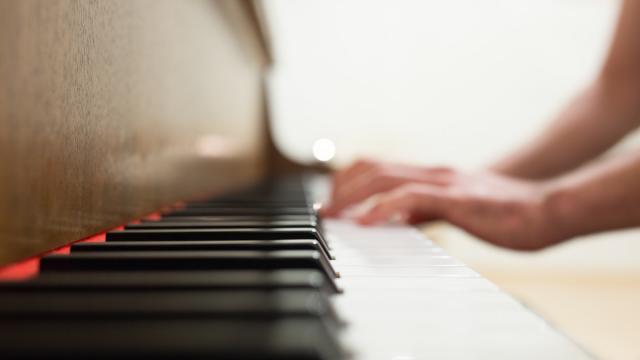All musicians have a different approach to becoming their very best, but whatever your practice, it will inevitably include some version of running scales. There is a great deal of tedium in being good enough to keep up when inspiration strikes. Unfortunately, this has translated to many a miserable afternoon for pressured kids at the keyboard. But we’re adults now. Let’s practise smart, not hard.
Image: Pexels
On the subreddit /r/ProLifeTips, user u/banana__phone brought up an old tip they’d gotten from their former piano teacher in a post:
My piano teacher told me it’s always better to practice 20 minutes every day at a skill rather than 60 minutes every 3 or so days.
This has helped me, at least. Especially if I set a timer aside. It sticks with me longer and I find I improve that much faster if I set aside time every day for what I want to get better at.
Commenters replied that this is called “distributed practice”, and music teacher Robert Woody actually wrote a piece about it in Psychology Today. He outlines a few reasons why it’s better to practise frequently, but for relatively short periods of time.
Motivation
You want to be a great artiste! Anything is worth the sacrifice! But damn, you’re kinda depressed after a day working on your art. Woody thinks that people who practice too much stamp out their enthusiasm for their craft, and that’s a huge mistake:
Some people who’ve made music their life’s work can come to feel an inner pressure to practice. Constantly thinking about all that they should be practicing – scales, fundamentals drills, ear playing, technical exercises, etudes, repertoire – they may believe that they’re never getting in enough time. An obsessive orientation toward practice has been linked to feelings of guilt and anger, and an overall dissatisfaction with one’s musical life
If you make something so tedious and awful and consuming, you won’t want to do it. And then you won’t be practising very much at all.
Injury
Practising too much can mean causing injuries it’s difficult to recover from, because they’re created by you wearing down your body over time. You need that rest:
Even with the will to do it, large amounts of practice come with other risks as well. The physical toll may lead to overuse injuries to instrumentalists and vocal nodes in singers. These conditions will stunt the benefits of practice and can eventually force a stoppage of all music making so the body can recover.
Woody also warns that giving up sleep to stay up all night with your cello, or waking up super early, isn’t always the best way to make good use of your time. It’s better to be sharp from sleep than running arias while yawning. If you are mentally and physically fatigued, you aren’t learning anything.
Quality Over Quantity
So, why do people choose to run endless drills if they could be reducing their practice time? Because it actually requires less mental analysis. If you step back and really consider what it is you need to work on, you’d create more specific goals.
Efficient practicing begins with thoughtful goal setting. Not only should musicians enter practice sessions with a plan for the sequence of activities (e.g., 1. warmup, 2. run scales, 3. work problem spots in concert pieces, etc.), they should target aspects of performance where improvement is sought. Broad goals like “I want to sound better” are not nearly as helpful as specific ones, such as “I want even rhythms on arpeggios in both fast and slow tempos.”
Maintaining this sort of focus and specificity isn’t as easy as doing something by rote over and over. But it will free up your life and make you better overall.
So, Does It Work?
Well, according to studies, it depends on the skill you’re developing. The opposite of distributed practice is “massed practice” – doing the same thing over and over for a long time. In the textbook on physical skills Motor Learning and Development, researchers Pamela Haibach, Greg Reid and Douglas Collier write that numerous studies show that with skills such as music, distributed practice is where it’s at:
Continuous skills are learned better with distributed schedules of practice than massed, while the reverse is true with discrete skills. Thus, swimming, dancing, and skiing would benefit from distributed practice, while hitting a golf ball or baseball can be learned effectively under massed practice.
A discrete skill is something brief you do over and over, with a clearly defined start and end to the action. A continuous skill is a motor movement with no specific beginning or end – such as, say, playing the violin. Do it briefly every day, so you can do it (well) continuously.

Comments